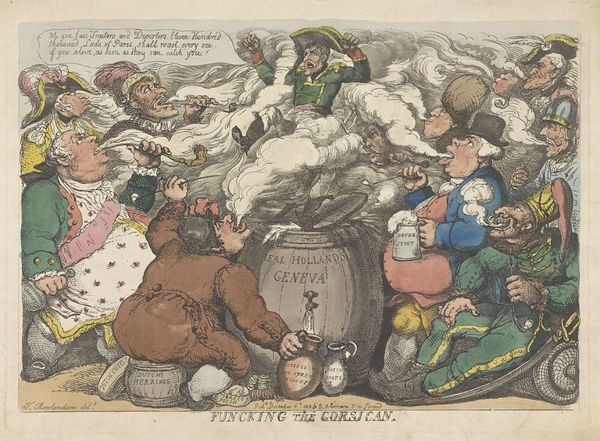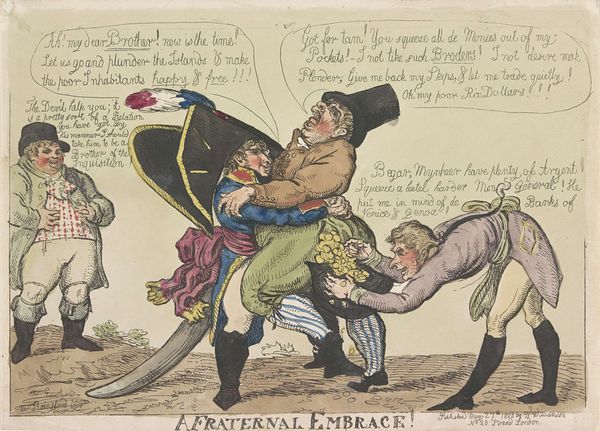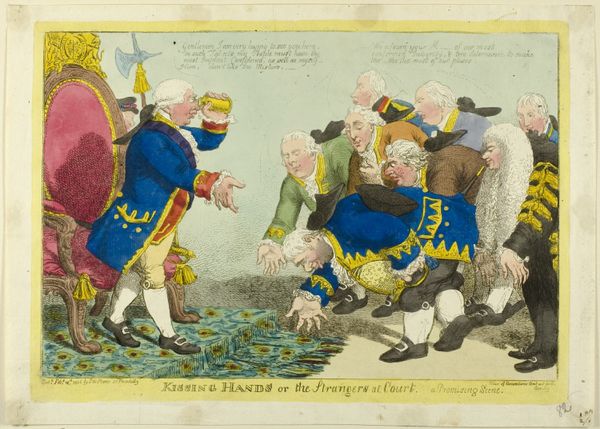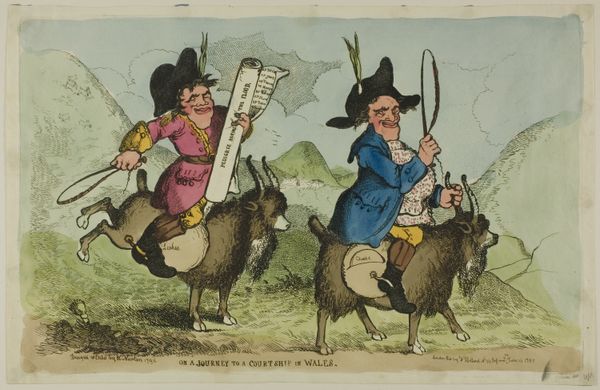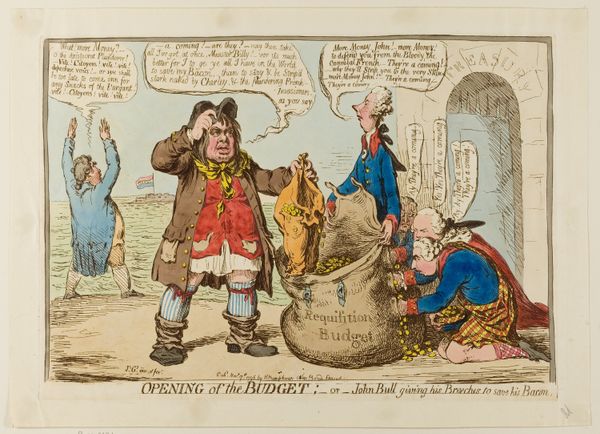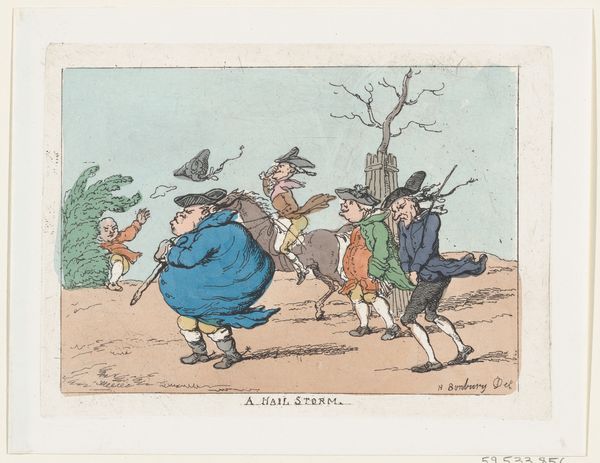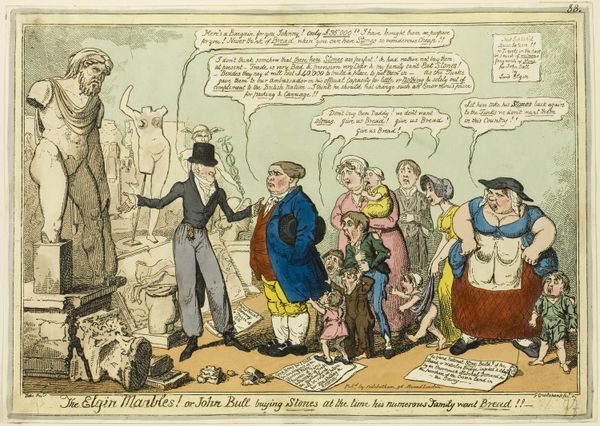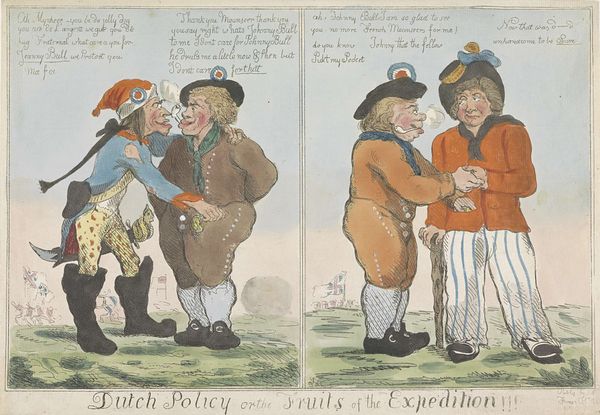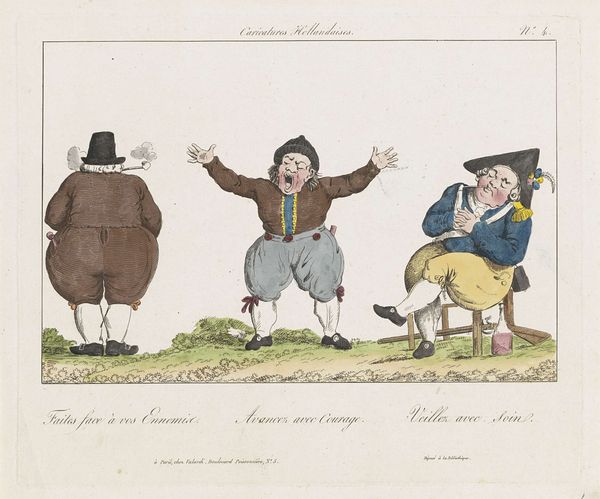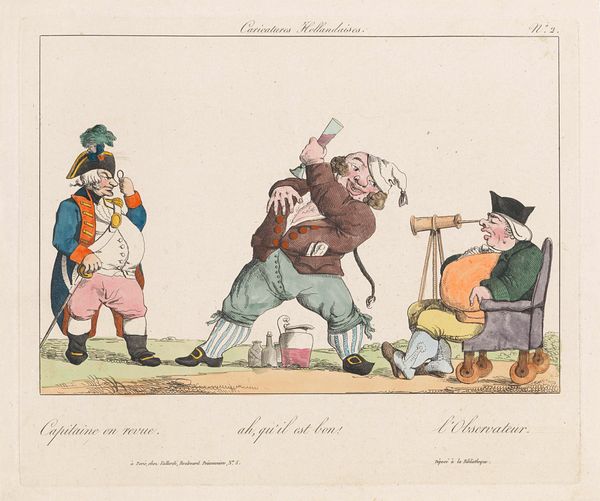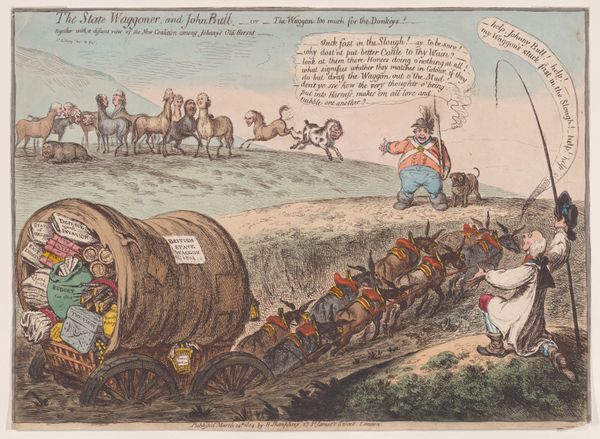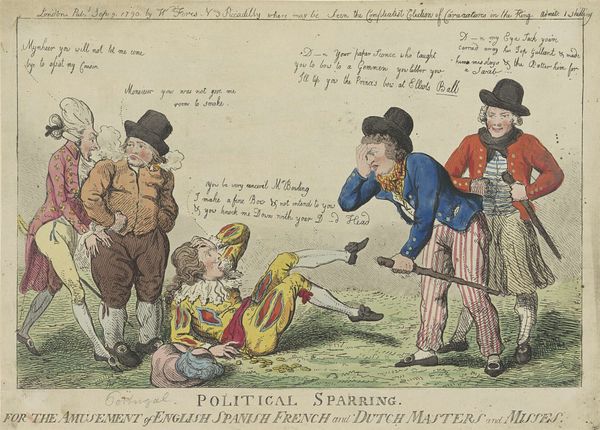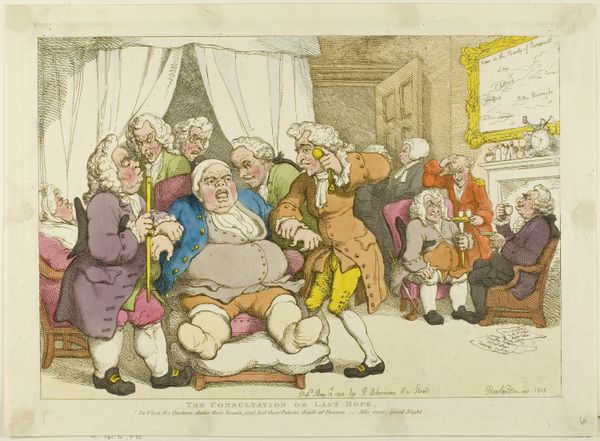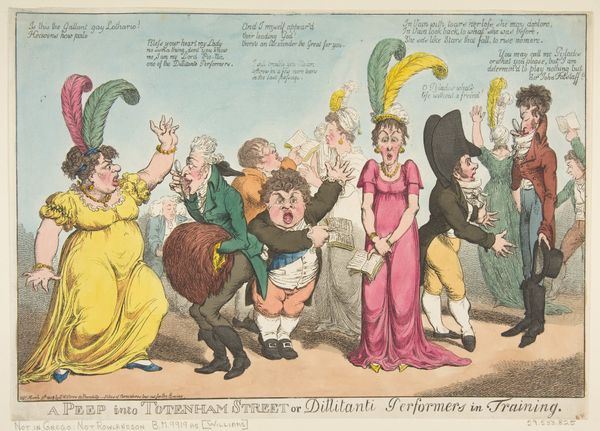
print, etching, watercolor
#
neoclacissism
# print
#
etching
#
caricature
#
cartoon sketch
#
watercolor
#
watercolour illustration
#
history-painting
#
cartoon carciture
Dimensions: height 246 mm, width 398 mm
Copyright: Rijks Museum: Open Domain
Curator: This print, possibly from 1795, is titled "Franse sansculotten in Hollandse broeken," attributed to Isaac Cruikshank and held at the Rijksmuseum. It employs etching and watercolor in its creation. What strikes you first? Editor: The central image of the Frenchman emerging from a pair of oversized trousers! It is visually arresting; it certainly grabs your attention immediately. It’s strange and cartoonish. Curator: It’s definitely meant to be provocative! Cruikshank was a master of political caricature. Here, he’s lampooning the French Revolution’s impact on Dutch society. The title itself is a pun – "sans-culottes," meaning "without breeches," referring to the working-class revolutionaries in France, are becoming "culottes," which represents wealth and aristocracy. Editor: So the huge trousers symbolize…plunder? Is the French revolutionary figure being enriched by the Dutch? The coins spilling from the trousers certainly point in that direction. I am seeing the Phrygian cap, a clear sign of the Revolution, turned predatory. Curator: Precisely! It’s a satirical comment on the perceived hypocrisy of the revolution. The French revolutionaries, who claimed to fight for equality, are here depicted as looting and exploiting the Dutch. Editor: And look at the figure on the left, guzzling gin and in ragged clothes. Another, different visual short hand about revolution, as well as the seated person counting "DOLLARS" for what is labelled, "The use of the National Convention", which gives the political motivation in monetary terms. This tells a cynical story through symbols we're still able to quickly grasp centuries later. Curator: Exactly! Cruikshank exploits popular anxieties. The French Revolution, initially seen by some as a force for liberation, was increasingly viewed with suspicion, particularly by those who saw their wealth and power threatened. It speaks volumes about the complex and contradictory narratives surrounding revolutionary movements. Editor: Indeed. The piece is not just a record of a specific historical moment, but a reflection of the enduring human capacity for satire when facing times of tumultuous social upheaval. Curator: It reminds us that history is rarely simple. Art, even in caricature, provides an avenue for understanding diverse perspectives.
Comments
No comments
Be the first to comment and join the conversation on the ultimate creative platform.
